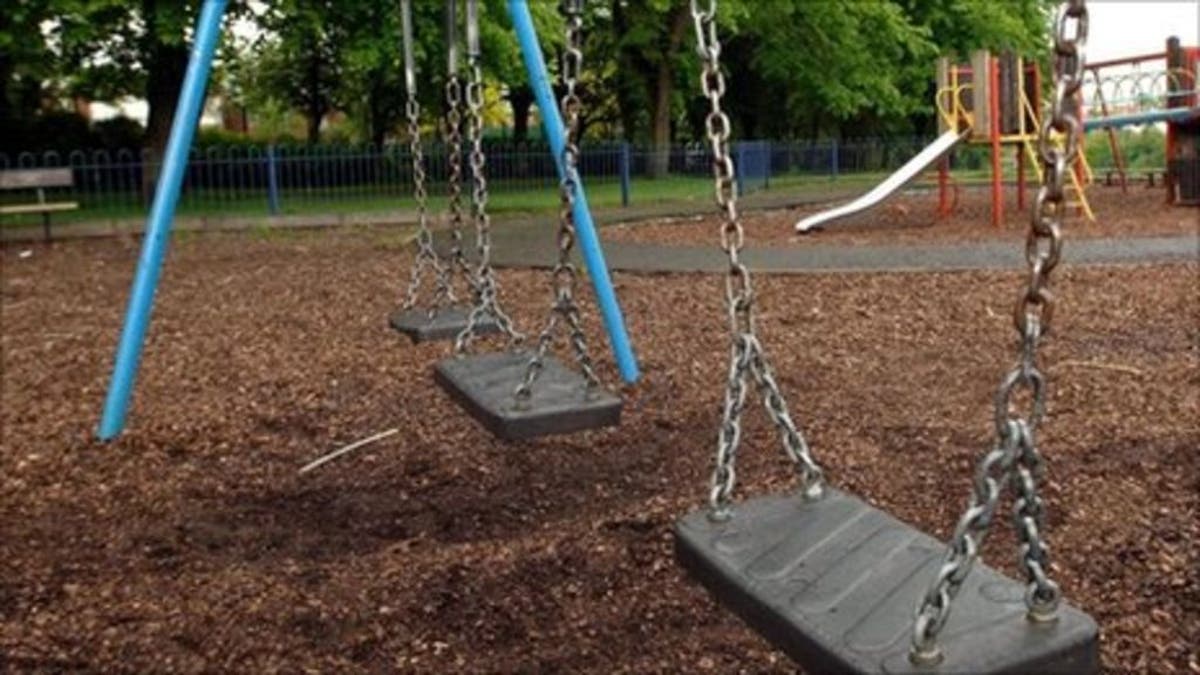
Some schools are hiring "recess consultants" for kids. (John Giles/PA Wire/Press Association via AP Images)
In a move that strips children of independence, creativity, and free play in the schoolyard, two Minnesota public schools have hired “recess consultants” to teach kids something they already know how to do — play during recess.
The Minnesota schools join a growing number of public schools in micromanaging our children’s recess. The national nonprofit Playworks, which employs recess coaches, has programs in 900 schools in 23 U.S. cities, according to its website, and “reaches more than half a million students directly and through professional training services.”
Half a million children in America are being retrained to play. The price tag? Packages vary.
For example, the Edina, Minnesota, school district, in the suburbs of Minneapolis, has 12 schools and about 8,500 students. The district spent $30,000 to hire Playworks to manage the interactions of their students. Only two elementary schools in Edina are using the services.
Linda Wasmer Andrews, a health writer with a master’s degree in psychology, disagrees with the concept.
“When well-meaning but misguided,grown-ups interfere too much in kids’ playtime, they deprive children of the opportunity to learn, grow, and just plain have fun,” she told LifeZette.
Part of Playwork’s mission is to rewire kids’ verbal reactions on the playground, getting rid of the phrase “You’re out!” and replacing them with “good try!” or “nice job!”
“That’s not applicable in the real world,” said one top-tier New England sales professional. “When you don’t hit your numbers, your boss won’t say ‘good try,’ he’ll say ‘you’re fired!’ Kids will be so unprepared for the real world — it’s a shame.”
Free play offers several benefits to kids — good physical exercise, problem-solving, and robust creativity.
“Socially, playing together allows children to practice making friends, getting along, taking turns and being both a leader and a follower,” Andrews said. “Children benefit even when things don’t always go their way. Letting kids be tagged ‘it’ or lose an occasional game of kickball gives them a chance to develop resiliency skills that will serve them well later in life.”
Frank Peirce of Nashville, Tennessee, laughed when he heard about Playworks.
“What? Is that a real thing? They’re ruining the best part of a kid’s day,” he told LifeZette.
“Recess is so important because it teaches kids how to interact socially with one another, without adults being directly involved. Recess should be a part of the day where kids get to learn on their own,” he said.
Playworks touts the benefits of their all-inclusion-all-the-time model on its website.
Since when does everyone need to be included all the time? Intervening in playtime doesn’t show an overarching concern for kids, but instead a lack of faith in their developing abilities.
Playworks declined a request for an interview. It offers a “library” of acceptable games on its website, which include games called “Bumpity Bump Bump,” “Cut the Cake,” and “C’mon In and Sit Down.”
Sounds like a rollicking good time, right?
“There are recess monitors at every recess my kids have,” one Boston-area mom said. “Why do we have to hire specialists for every moment of a kid’s life?”
A group of Concord, Minnesota, fifth graders signed a petition protesting Playworks, and Concord parents signed a petition of their own, according to the Minneapolis Star-Tribune. Still, the school district may expand the program into other schools.
“The philosophy of Playworks does not fit Concord,” Kathy Sandven, a mother of twin boys, told the Star-Tribune. “It is a structured philosophy — an intervention philosophy — not allowing kids for free play.”
The Playworks website claims, “On our playgrounds, kids play hard, cheer loud and high-five with joy. And they carry a feeling of empowerment and belonging with them into their classrooms, back to their neighborhoods and out into the world.”
Chris Holden, principal at Normandale Elementary, said he noticed the benefits of the Playworks program in the first few weeks of school. He reported fewer students visited the principal’s office and the nurse’s office after recess.
“Every school is looking for a way to increase student activity and engagement and decrease conflict,” Holden told the Star Tribune.
Schools can choose from a menu of options from Playworks. They can participate in Playworks professional development, hire a full-time Playworks playground coach, or hire a coordinator for a week each month to “teach, model, and empower a sustainable recess program.”
“Recess should be fun and energetic and safe and inclusive for everyone,” the Playworks website emphasizes. “Isn’t that what we want for all kids in elementary school today?”
In this “pay-to-play” model, everyone loses — except the companies and nonprofits that will make money teaching our children how to play “correctly.”
“Free play is as good for developing minds as it is for growing bodies,” Andrews said. “Through unfettered play, children interact with their world and stretch their creativity. To watch young children engaged in make-believe play is to be in awe of undiluted imagination.”
“Adults are just obsolete children and the hell with them,” a wise man once said. That was Dr. Seuss, a believer in the awesome capabilities of the creative and independent child.
More from Lifezette.com:
Moms Feed the Troops: Military wives offer comfort food on wheels
QUIZ: How Much Do You Know About Halloween?

